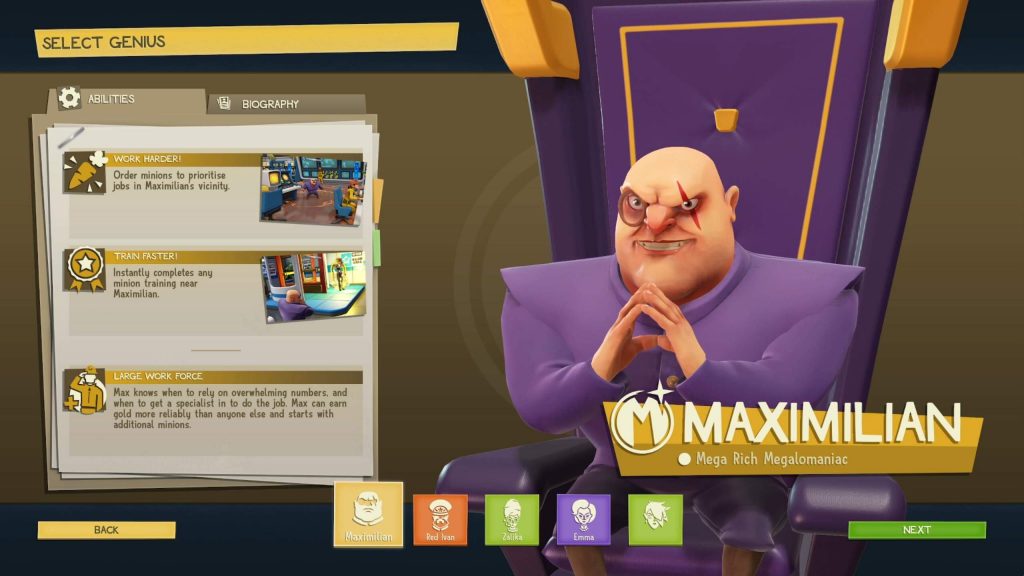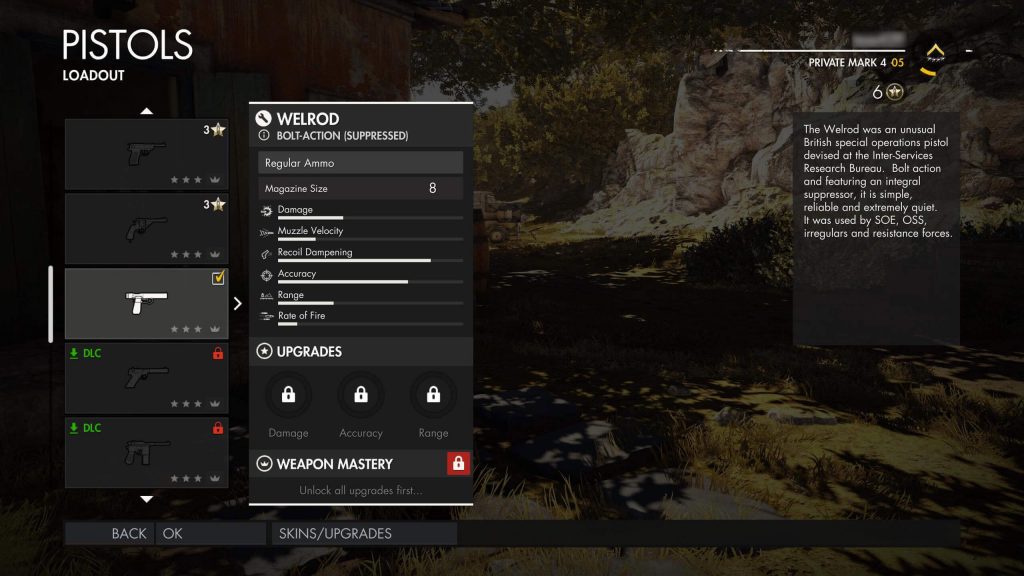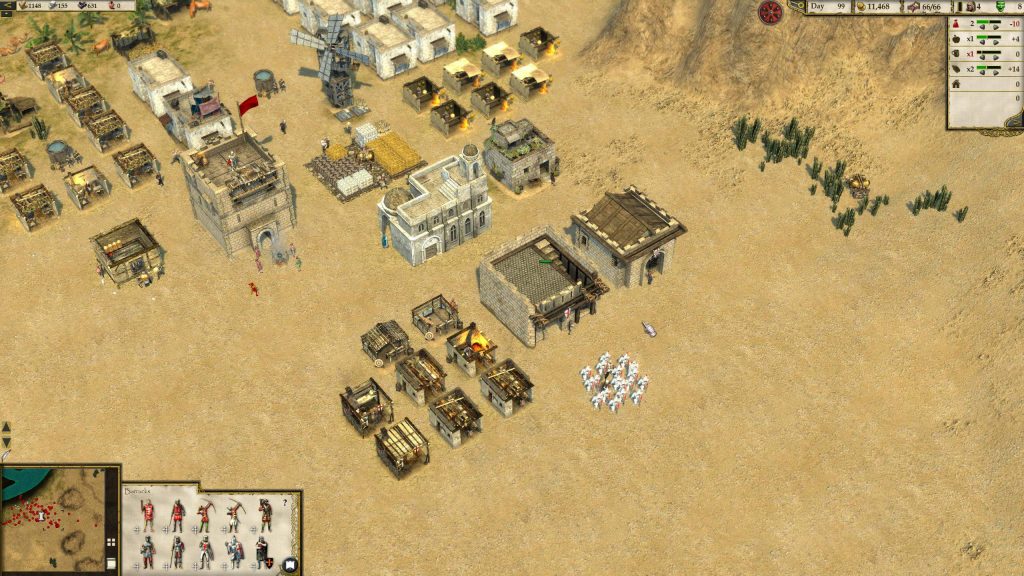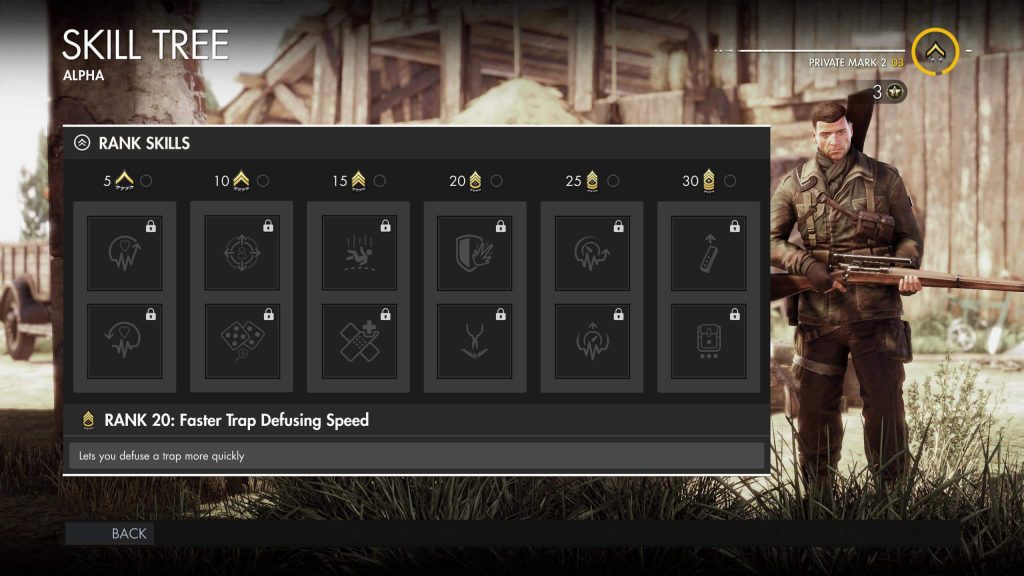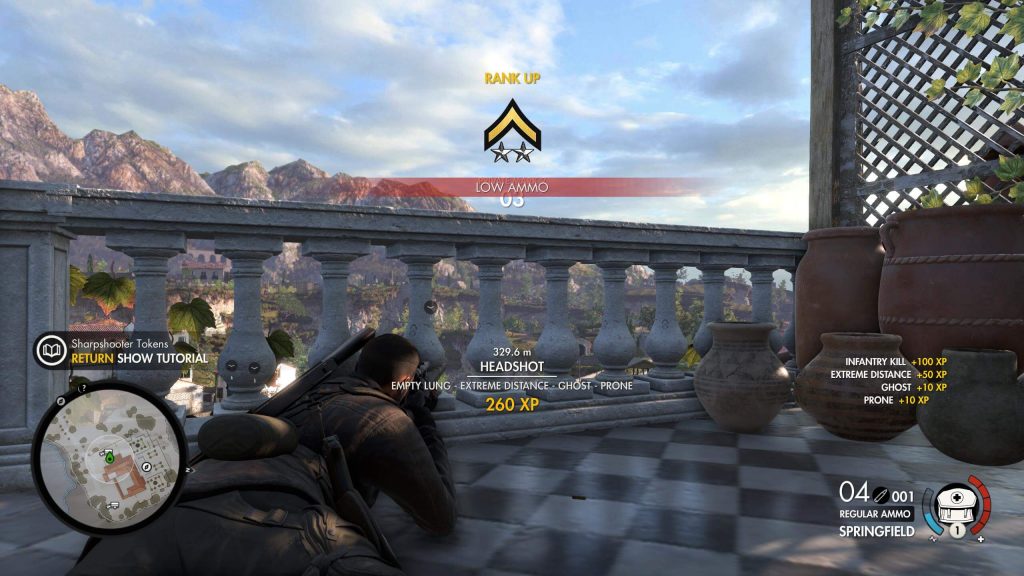Provide Players with Rewards Not Necessarily Required for Progression
On this page
- Abilities, Perks, Powers, Skills, and Upgrades
- Additional Conversation Options
- Characters and Roles
- Collectibles
- Consumables
- Currency
- Databases
- Game Modes
- Gear
- Keys and Access Cards
- Levels and Locations
- Medals, Badges and Trophies
- Multimedia
- Papers with Information
- Praise and Recognition
- Score
- Side Quests
- Structures Including Buildings
- Tradeable Rewards
- Units
- Vehicles
- Virtual Experience
- Vistas
These rewards are not essential for further progression in the game; however, they can still be valuable to players for several reasons:
They encourage personal growth rather than simply progressing through in-game ranks, through rewards such as praise and recognition.
They encourage virtual advancement over personal development through medals, badges, trophies, virtual experience, and score.
They assist players in overcoming various challenges by offering abilities, perks, powers, skills, upgrades, characters and roles, consumables, gear, currency, and virtual experience.
They enable players to better express their personal preferences and play style through customized gear, vehicles, buildings, tools, and similar items.
They provide insight into the game’s narrative and world-building through collectibles, additional conversation options, databases, and backstories.
They introduce additional challenges in the form of side quests.
They offer new areas within the game world where additional challenges can be undertaken, such as levels and locations.
They offer access to further rewards, excluding praise and recognition and vistas.
They enhance replayability and influence the overall playtime of the game, again with the exception of vistas.
It may be advisable to motivate players by offering them a reward even for completing simple tasks; however, the game should remain sufficiently challenging. The primary goal is to sustain player engagement and encourage them to return to the game repeatedly.
Abilities, Perks, Powers, Skills, and Upgrades
These elements can be particularly beneficial when conventional methods of completing tasks—those lacking enhancements, such as abilities, perks, powers, skills, or upgrades—prove to be more difficult. Such tasks may include, for example:
1. Escaping a dangerous area.
Example:
In Crysis 3, players can use the cloak power to escape hostile situations undetected.
2. Reaching inaccessible locations.
Example:
In Far Cry 5, unlocking the Grapple perk enables players to use a grappling hook to access hard-to-reach areas, such as platforms on radio towers.
3. Engaging and defeating formidable enemies.
Example:
In Company of Heroes, unlocking the Defensive Smoke Screen ability allows players to deploy a smoke screen that temporarily conceals their M4 Sherman tanks.
4. Increasing the likelihood of winning a scenario.
Example:
Installing performance upgrades on vehicles in Need for Speed: Underground 2 enhances the chances of victory in races.
Example:
The Rewind feature in Grid 2 enables players to reverse time briefly and correct mistakes made during a race.
Additional Conversation Options
For more details regarding bonus conversation options, consult the section titled Additional Conversation Options.
Characters and Roles
When a game provides players with multiple characters or roles—either as playable protagonists or supporting companions—it is important that each choice includes unique abilities or skills. These distinctions create a strategic advantage depending on the context of gameplay and make each character or role a meaningful choice.
When offering such a selection, each character or role should be well-suited to specific tasks, ensuring that every option is useful and worth consideration. Nonetheless, it is essential that players can complete the game’s primary objectives regardless of the character or role they choose. Consider the following examples:
1. Player characters in RPGs, who possess diverse skill sets that excel under different tactical approaches.
Example:
In The Elder Scrolls V: Skyrim, players can complete the main storyline using any character type selected at the beginning of the game.
2. Companions or squad members in RPG or action games, who demonstrate superiority in distinct combat scenarios.
Example:
In an action game, players might select a companion that excels in one of the following roles:
Close-quarters battle (CQB).
Long-range combat.
Combat support.
Reconnaissance.
Example:
In Genshin Impact, players can switch between party members, each possessing unique elemental abilities and skills that can be combined for enhanced effects.
3. Generals and leaders in strategy games, who command unique units, possess special abilities, and employ differing tactical strengths.
Example:
In Command & Conquer: Generals – Zero Hour, players may choose from nine distinct generals:
China Generals:
Infantry General.
Nuke General.
Tank General.
GLA Generals:
Demolitions General.
Stealth General.
Toxin General.
USA Generals:
Air Force General.
Laser General.
Superweapon General.
In Evil Genius 2: World Domination, players can select from a number of distinct genius characters, each offering a unique strategic approach.
Credit: Rebellion Developments. Screenshot captured by the author.
4. Roles in multiplayer strategy games, which come with exclusive unit types, abilities, and tactical specializations.
Example:
In World in Conflict, during multiplayer sessions, players can choose from four available roles:
Armor: Specializes in direct land-based attacks.
Air: Focuses on air strikes, aerial reconnaissance, and transport.
Infantry: Effective against all unit types, but requires cover and concealment to be most effective.
Support: Specializes in anti-aircraft defense, artillery support, and vehicle repairs.
Collectibles
Possessing collectibles should ideally provide some form of benefit to gameplay, such as:
Gaining additional insight into the game’s narrative.
Enhancing the player’s skills and abilities.
Earning in-game currency.
Unlocking new gameplay options.
These effects may be either temporary or permanent. If you aim to encourage players to actively search for collectibles within your game, ensure that the rewards they provide have a tangible and positive impact on the player’s experience.
Collectibles should not be included in the game solely for the purpose of artificially extending playtime or increasing content volume. Because games are expected to foster exploration, they should avoid providing exact locations for collectibles. This makes the act of searching a more engaging and rewarding challenge. However, if only a few collectibles remain and players encounter difficulty locating them, it may be beneficial to offer optional indicators to assist in their discovery.
Regarding the quantity of collectibles within each level, it is important to strike a balance. An excessive number may eventually reduce the enjoyment of collecting, particularly if the items do not positively influence gameplay.
Gaining Additional Information About the Game’s Story
Example:
There are five distinct types of collectibles in Control that contribute to the game’s narrative depth.
1. Research and Records
Description: These documents are often written by Bureau scientists and researchers, detailing their findings on various phenomena, objects of power, and altered items.
Story Contribution: They provide insight into the Federal Bureau of Control’s (FBC) operations, the nature of the supernatural events, and the Bureau’s attempts to understand and contain these phenomena. This helps players grasp the scientific and bureaucratic aspects of the FBC, as well as the potential dangers associated with their research.
2. Case Files
Description: Case files document specific incidents or investigations conducted by the Bureau, often detailing encounters with altered items or objects of power.
Story Contribution: These files reveal the consequences of the Bureau’s experiments and the impact of supernatural events on individuals and the environment. They often highlight the risks involved in the Bureau’s work and provide context for the game’s setting, illustrating the chaotic and dangerous nature of the world.
3. Correspondence
Description: This includes emails, memos, and letters exchanged between Bureau employees.
Story Contribution: Correspondence offers a more personal glimpse into the lives of the Bureau’s staff, showcasing their thoughts, concerns, and relationships. It can reveal internal conflicts, the emotional toll of working in such a high-stress environment, and the overall atmosphere within the Bureau, adding depth to the characters and their motivations.
4. Multimedia
Description: This category includes videos, audio recordings, and other media formats that capture events or interviews related to the Bureau’s work.
Story Contribution: Multimedia collectibles provide dynamic storytelling elements, allowing players to experience events or witness interviews that reveal character backstories and the Bureau’s history. They can convey emotions and reactions in a way that written documents cannot, enhancing the narrative’s impact.
5. Hotline
Description: The Hotline is a unique collectible that features a series of audio recordings from a mysterious character known as the “Former.”
Story Contribution: The Hotline recordings provide cryptic insights into the nature of the Bureau, the supernatural, and the overarching conflict within the game. They often contain philosophical musings and hints about the game’s themes, such as reality, control, and the unknown. The Hotline serves as a narrative device that deepens the player’s understanding of the game’s lore and the enigmatic forces at play.
Improving Player’s Skills and Abilities
Example:
There are two categories of Bobbleheads in Fallout 4 available:
Special Bobbleheads: Grant one additional point to one of the player’s seven SPECIAL attributes.
Skill Bobbleheads: Provide a ten-point bonus to one of the thirteen skill areas.
Example:
Upon collecting at least ten blue medallions in Resident Evil 4, players can purchase the Punisher handgun from the Merchant. This weapon is capable of striking multiple enemies with a single bullet.
Earning In-Game Currency
Example:
There are twelve hidden packages scattered throughout Grand Theft Auto V. Collecting one of them immediately rewards the player with $25,000.
Gaining Access to New Options
Example:
Grand Theft Auto V contains fifty spaceship parts. Collecting all of them unlocks the Space Docker, a unique and exclusive vehicle.
Consumables
Consumables are items that, when used, can produce either positive or negative effects, or both. Their influence on gameplay may be temporary or permanent. In certain situations, consumables can significantly assist players, making the difference between success and failure in completing an objective.
Beverages and Food
When players consume food or beverages, they can receive various benefits.
Example:
Dirty Water in Fallout 4 restores thirst but introduces radiation damage.
Example:
Cossacks Vodka in S.T.A.L.K.E.R.: Shadow of Chernobyl reduces radiation levels and heals the player, but induces drunkenness.
Example:
Energy Drinks in S.T.A.L.K.E.R.: Shadow of Chernobyl restore stamina and grant a temporary speed boost.
Drugs
Drugs can offer specific gameplay effects.
Example:
Buffouts in Fallout 4 temporarily increase strength and health.
Example:
Psy-blocks in S.T.A.L.K.E.R.: Call of Pripyat greatly reduce susceptibility to psychic emanations.
Potions
Potions often grant enhancements for a limited duration.
Example:
Potion of Fortify Sneak in The Elder Scrolls V: Skyrim temporarily increases the Sneak skill.
Example:
Thunderbolt in The Witcher 3: Wild Hunt temporarily increases attack power.
Currency
Currency can be used to obtain other types of rewards. Players can acquire currency through, for example:
Looting.
Stealing.
Selling items.
Completing objectives.
In-game currency may be represented by any item or material that holds value within the game world.
Gold
Example:
In Settlers IV, players are not required to forge gold to defeat opponents. However, choosing to do so enables the training of Level 2 and 3 soldiers, and the construction of large temples and eyecatchers.
Miscellaneous
Example:
In Fallout 4, players can collect bottle caps, which, while not essential to completing the main storyline, are necessary for purposes such as building settlements or purchasing equipment.
Databases
For more information about databases, refer to the second format of databases described in the section titled Databases.
Game Modes
Additional game modes—including match types and event types—provide players with unique objectives and rule sets. These options enable players to explore varied gameplay challenges and discover modes that align with their personal preferences, thereby enhancing the game’s replay value.
For more information on this topic, refer to the section Offer Players a Variety of Game Modes.
Gear
Any piece of gear is considered optional if players are not required to carry it in order to progress. However, it can still assist them in overcoming various challenges. Gear can encompass a wide range of items, including but not limited to:
Weapons.
Ammunition.
Armor and shields.
Clothing, including footwear.
A comprehensive list of gear items can be found here.
If players do not require functional gear and are instead interested in customizing their characters’ appearance, cosmetic gear may suffice. Additionally, players may be given the option to customize the visual aspects of their gear. This feature is particularly useful for those who wish to distinguish themselves from other human or AI participants. Customization may include, for example, changing the color or texture (skin) of gear.
Weapons and Tools
A variety of weapons, projectiles, explosives, and tools can assist players in facing different challenges. The selection of a particular weapon or tool should not be critical for progressing further in the game. While some weapons and tools may be more effective in specific contexts, all available options should remain viable and worthwhile.
In Sniper Elite 4, although some pistols outperform others in metrics such as damage, any pistol can successfully complete the required task.
Credit: Rebellion Developments. Screenshot captured by the author.
Certain weapons and tools may be highly effective in accomplishing specific objectives, making them specialized items. However, if players can still complete their tasks using alternative equipment, such specialized items are not considered essential for progression.
Example:
In Company of Heroes: Blitzkrieg Mod, flamethrowers are particularly effective against infantry units. Nevertheless, players may also use rifles, submachine guns, machine guns, grenades, and other weapons to achieve the same outcome.
Keys and Access Cards
Keys and access cards enable players to unlock rooms or areas that contain valuable rewards such as currency, gear, or vehicles.
Example:
In The Elder Scrolls V: Skyrim, players may steal keys from non-player characters, which can then be used to unlock buildings and loot their contents.
Example:
In Dark Souls, players can discover keys that unlock specific areas or provide shortcuts within the game’s interconnected world.
Levels and Locations
When players unlock optional levels or explore new locations, additional opportunities may arise, such as access to side quests, supplies, or other content that is not essential to completing the primary objectives of the game.
Example:
In Mass Effect 2: Legendary Edition, players can scan planets for anomalies while aboard their spacecraft. When an anomaly is detected, a probe can be launched to the planet, unlocking a side mission that the player can then undertake.
Example:
In The Elder Scrolls V: Skyrim, exploring caves can be highly rewarding, offering chances to engage in combat, collect treasure, and uncover elements of the game’s lore.
Medals, Badges, and Trophies
These are achievement-based rewards that players receive upon completing specific objectives established by the game. These items serve as forms of recognition and do not offer functional benefits beyond acknowledging the player’s accomplishments.
While unearned achievements do not need to be displayed in-game, players should at least have access to those they have already acquired.
Players may receive medals, badges, and trophies for completing particularly difficult or time-consuming tasks, such as collecting all available collectibles within the game. However, awarding only a medal, badge, or trophy for such extensive effort may not provide a satisfying sense of reward. It would be more effective to accompany these acknowledgments with more substantial rewards, such as experience points, in-game currency, or exclusive gear.
Multimedia
For more information about multimedia, refer to the section titled Multimedia.
Papers with Information
For more details regarding papers containing information, consult the section titled Papers with information.
Praise and Recognition
Players do not necessarily require tangible rewards to feel acknowledged. In certain scenarios, verbal or auditory praise for their efforts, moral choices, and achievements can provide a strong sense of satisfaction. However, such intangible rewards may not appeal to all players, as there are always individuals who prefer to receive tangible rewards that directly facilitate gameplay.
Regarding the timing of praise, there are two primary options:
Praising during scenarios
1. Sound effects for successful kills.
Example:
In Unreal Tournament, sound effects are used to recognize player achievements, including:
“First Blood” for the first kill in a match.
“Killing Spree” for 5 kills.
“Rampage” for 10 kills.
“Dominating” for 15 kills.
“Unstoppable” for 20 kills.
“Godlike” for 25 kills.
“Wicked Sick” for 30 kills.
2. Companion feedback.
Example:
In Tom Clancy’s Rainbow Six: Vegas 2, AI companions may praise the player with comments like “Impressive!” or “Nice shot!” following skillful gameplay or a successful action.
3. Sound effects for consecutive kills.
Example:
In Unreal Tournament, specific phrases reward consecutive kills:
“Double Kill!” for two consecutive kills.
“Multi Kill!” for three consecutive kills.
“Mega Kill!” for four consecutive kills.
“Ultra Kill!” for five consecutive kills.
“Monster Kill!” for six consecutive kills.
4. Praise for exceeding expectations against AI.
Example:
In Command & Conquer: Generals – Zero Hour, when the player constructs a significant number of anti-air units, General Granger may respond: “Hmm, that’s a lot of anti-air, General. Think it will be enough to calm the fear?”
Praising After Scenarios
This praise may take the form of:
1. Sound effects or animations following mission completion.
Example:
After successfully defeating Prince Kassad in Command & Conquer: Generals – Zero Hour, the character acknowledges the player’s skill by saying: “You have signed my death warrant with your superior tactics.”
2. Verbal recognition from non-player characters (NPCs) whom the player has saved or assisted during a mission.
Score
The score system plays an important role in competitive games, serving as a metric that reflects how well players perform. Below are several examples of how score systems are implemented:
Example:
DOOM Eternal rewards aggressive and skillful gameplay with a score system that evaluates combat efficiency and exploration. Players earn points for varying their combat style, discovering secrets, and completing missions. A post-level scoring summary encourages replayability and performance improvement.
Example:
In Bayonetta Series, players receive scores based on combo diversity, damage taken, and time spent in combat. Based on their performance, they are awarded medals ranging from Stone to Pure Platinum. This system motivates players to refine their techniques and embrace the game’s stylish mechanics.
Example:
In Tony Hawk’s Pro Skater Series, points are awarded for executing and chaining skate tricks. Greater complexity, variety, and risk—such as balancing and time spent in the air—yield higher scores. This system encourages experimentation and continuous skill development.
Side Quests
For more information about side quests, refer to the section titled Secondary Objectives.
Structures Including Buildings
Constructing specific structures can significantly assist players by making certain challenges easier to overcome.
Example:
In Company of Heroes: Blitzkrieg Mod, trenches provide substantial cover for infantry units, greatly increasing their survivability.
Other structures may serve purely decorative purposes.
Example:
In Terraria, players often build structures that are purely aesthetic—such as mansions, gardens, or parks—that have no direct influence on gameplay mechanics like NPC housing, defense, crafting, or progression.
Tradeable Rewards
Tradeable rewards can be found in the game world, acquired from characters, or obtained through looting. These items may be sold within the game’s economy, but they can also offer utility without necessarily being sold.
Example:
In The Elder Scrolls V: Skyrim, players can sell a wide range of items to merchants. Common categories include:
Weapons: Swords, axes, bows, and other types, including both one- and two-handed varieties.
Armor: Helmets, chest pieces, gauntlets, boots, and shields.
Potions: Health, stamina, magicka potions, and poisons.
Ingredients: Herbs, mushrooms, and animal parts for alchemy.
Jewelry: Rings and necklaces with high resale value.
Clothing: Non-armored garments like robes, hats, and boots.
Miscellaneous Items: Books, scrolls, and crafting materials such as ingots and gems.
Stolen Goods: Items obtained through theft, which can be sold under specific conditions.
Dragon Bones and Scales: Valuable items obtained by defeating dragons.
Unique Items: Special or quest-related items, though some may be necessary for progression.
There are also items intended solely for sale.
Example:
In S.T.A.L.K.E.R.: Anomaly, players often sell the following items, which have little use otherwise:
Jewelry, including hand watches.
Mutated body parts.
PDAs.
Maps.
Decks of cards.
Occasionally, certain items should be sold to specific merchants to maximize profit.
Example:
In S.T.A.L.K.E.R.: Call of Pripyat, researchers are particularly interested in artifacts such as Golden Fish, Crystal, Fireball, Graviton, or Medusa, and will offer higher prices for them.
Units
In strategy games, players deploy units that are advantageous based on the given objectives and the tactics they choose to employ. Units that do not provide strategic or tactical benefits are typically not deployed by players. These units can be regarded as optional, as their presence is not essential for the successful completion of an objective.
In a custom skirmish in Stronghold Crusader 2, players can construct an army using any combination of units according to their preferences. However, they must ensure that the army they assemble is capable of confronting and defeating the opposing force.
Credit: Firefly Studios. Screenshot captured by the author.
Vehicles
Vehicles provide players with faster or safer methods of transportation, aiding them in reaching various destinations. However, players are not entirely dependent on vehicles, as alternative means of travel such as walking or swimming are usually available.
Example:
In Tom Clancy’s Ghost Recon Wildlands, players may choose to walk or swim to their destinations. However, they also have the option to use vehicles such as cars, boats, or helicopters, which offer faster or more secure travel.
Example:
While playing as the Global Liberation Army (GLA) in Command & Conquer: Generals – Zero Hour, players can use Workers to construct various buildings. Although Workers are capable of walking to construction sites, they can be placed on Combat Cycles to reach the sites more quickly. Additionally, when mounted on Combat Cycles, Workers can traverse terrain obstacles that would otherwise be impassable on foot.
Virtual Experience
Virtual experience is a form of reward earned by performing specific actions or completing certain activities, depending on the game. This accumulated experience can be used to unlock additional in-game rewards or features.
In Sniper Elite 4, virtual experience is required to attain higher ranks. These ranks grant players access to new skills available in the game’s skill tree.
Credit: Rebellion Developments. Screenshot captured by the author.
In Sniper Elite 4, players receive promotions after accumulating a predetermined amount of virtual experience.
Credit: Rebellion Developments. Screenshot captured by the author.
Vistas
Vistas represent beautiful views from high positions, where players can admire.
Example:
The Elder Scrolls V: Skyrim is filled with majestic mountains, serene lakes, and beautiful forests, offering countless breathtaking views.
Example:
The Legend of Zelda: Breath of the Wild features a stunning open world with diverse landscapes, including rolling hills, towering mountains, and expansive plains, all beautifully rendered.
Example:
Red Dead Redemption 2 depicts the American frontier including sweeping vistas of mountains, rivers, and forests, showcasing the beauty of nature in a richly detailed world.
Example:
Ghost of Tsushima features stunning landscapes of feudal Japan, including lush forests, rolling hills, and picturesque coastlines, all enhanced by dynamic weather and lighting.
Example:
Horizon Zero Dawn offers breathtaking views of a post-apocalyptic world filled with lush landscapes, towering mountains, and ancient ruins, all inhabited by robotic creatures.

